The 10th edition of the World Urban Forum was held from 8-13th february in Abu Dhabi (United Arab Emirates), with the participation of more than 13 000 people from 168 countries. The event was organized by UN-Habitat for the first time in an arab country, and this edition's theme was Cities of Opportunities: Connecting Culture and Innovation.
World Urban Forum ends with call for united action to ensure sustainable future for cities and towns.
World Assembly of Local and Regional Governments
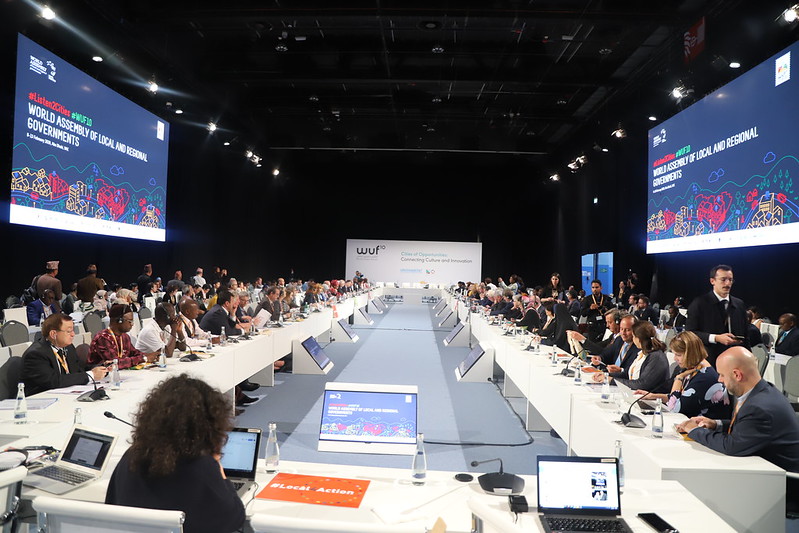
500 participants from all constituencies gathered on February 8th at the World Assembly of Local and Regional Governments organized by the Global Taskforce. 50 speakers from local, regional, national governments and other stakeholders debated, shared and presented experiences, propositions and solutions about six thematic roundtables:
Global partnerships and initiatives for sustainable urbanization
How urbanization affects and is affected by culture and innovation, was an all-women roundtable
How local and regional governments are integral to preserve urban heritage
Local and regional governments play a key role in maximizing the relationship between culture and sustainable urbanization.
How local and regional governments shape new technology for the future of their communities
Innovation and Culture for the Achievement of the Global Goals.
The Statement of the Tenth World Urban Forum World Assembly of Local and Regional Governments was elaborated through these debates. Participants stated that national and global representatives must work together with local governments to create more inclusive, human, cultural, democratic and sustainable society for citizens and therefore impulse and support multilevel and collaborative actions.
Find more about the World Assembly of Local and Regional Governments here.
The IOPD organized and actively participated in the following sessions emphasizing the importance of citizen participation and the localization of the Sustainable Development Goals (SDGs) for their effective implementation.
Cities governance, culture and localization of the SDGs
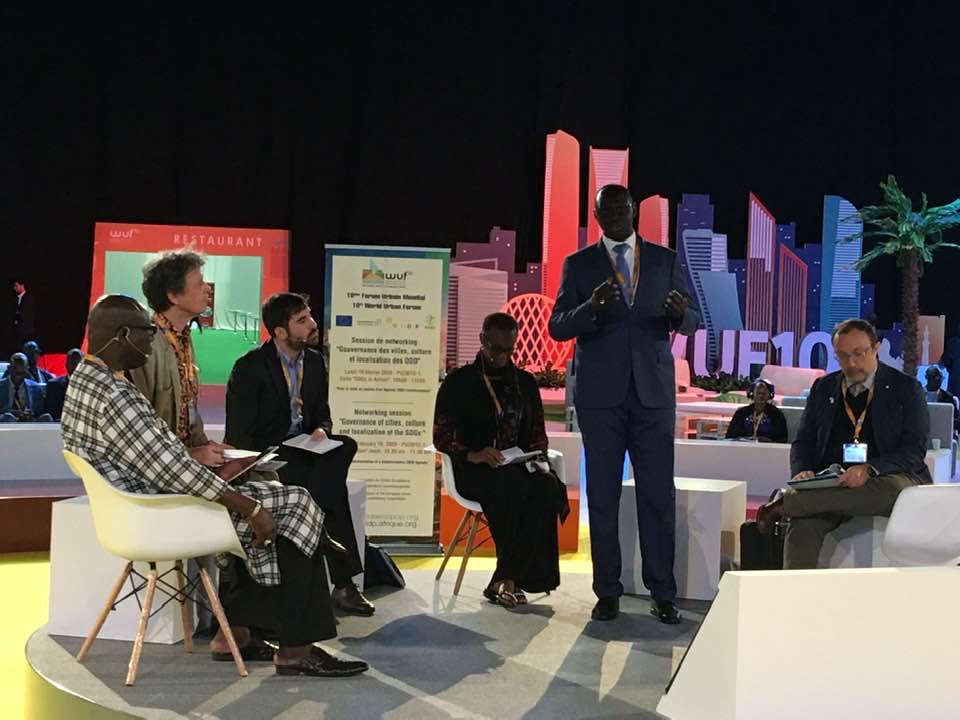
This session took place on February 10th in the SDGs in Action room and counted on the participation of Alioune Badiane, president of the Africa Think Tank - TUTTA, as a moderator. h speakers were Nelly Ouassenan, Vice Mayor of Cocody, Ivory Coast; Baba D'Diaye, President of the Departemental Council of Kaolack, Senegal; Adrià Duarte, IOPD Coordinator; Giovanni Allegretti, researcher at the Center for Social Studies/University of Coimbra, Portugal and Yves Cabannes, University College London. Bachir Kanouté, from Enda Ecopop and IOPD Africa, presented the session.
The different speakers presented how the SDGs are being implemented through participatory governance experiences, with the active participation of the organized civil society and citizens in general. Some of the messages to highlight are:
There won't be SDGs without the active participation of the citizens.
No one or no space can be left behind, referring to the peripheries.
Participatory budgeting must imply a change in the political culture, give voice to the people.
The VLR (Voluntary Local Review) are a powerful tool for the localisation of the SDGs.
In 2020, we are entering in the action decade of the SDGs.
Participatory practices and right to the city at the core of urban innovation
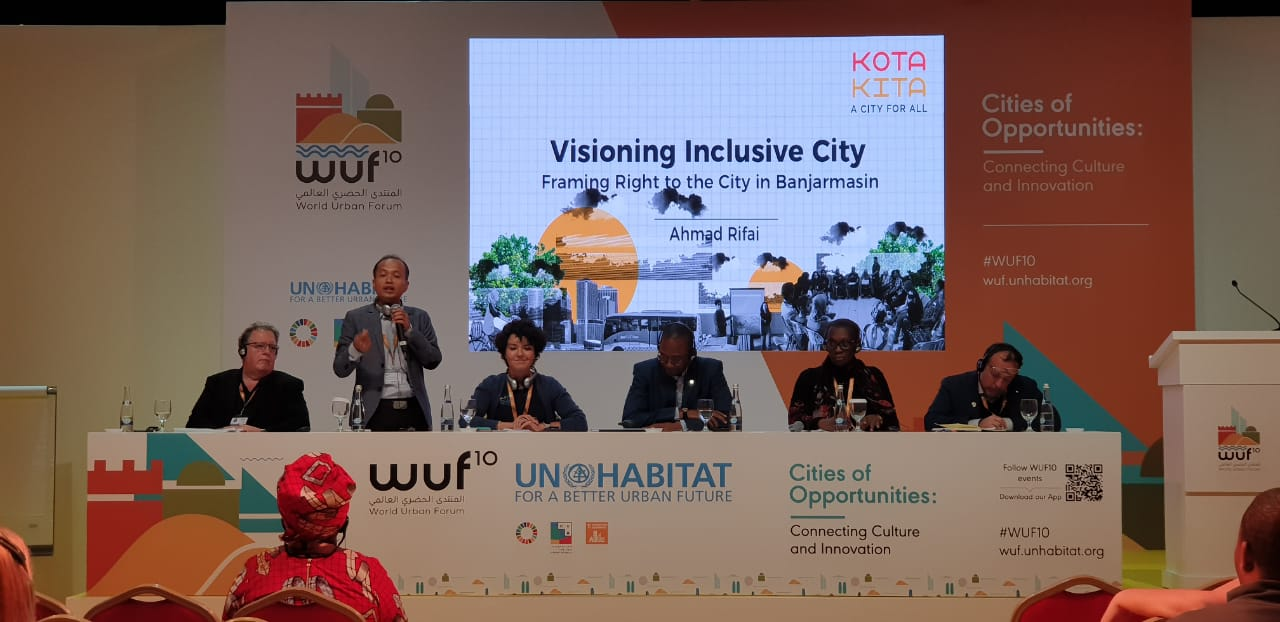
This event organized by the IOPD took place on Monday 10th in the afternoon. Adrià Duarte, IOPD coordinator presented and moderated the session during which different representatives of cities and experts shared their experiences of urban innovation channeled through citizen participation.
Luc Doray, General secretary of the Public Consultation Office of Montreal, presented its model of citizen consultation, the right of initiative and the inclusive focus of its process. Ahmad Rifai, director of the Kota Kita Foundation in Indonesia, explained that citizen participation serves a more inclusive urban development, especially with collectives of people with disabilities. The right to the city is the frame impulse mechanisms of participation in the urban planning and the monitor for public actions. Anna Sukhova from the World Bank's team in Russia explained how they're spreading and scaling up participatory budget in Russia, coordinated at regional level to allocate resources at local level. PB is very focus on inclusion, for example with disabled people in order to improve accessibility.
Bachir Kanouté from Enda Ecopop, Senegal presented to role of participatory budgeting in Africa to achieve sustainable development and right to the city. Giovanni Allegretti presented different innovative experiences from italian cities and regions, and highlighted the importance to institutionalized the participation policies. Finally Ms Nelly Ouassenan deputy mayor of Cocody explained the difficulties and challenges that faces a local government in Africa. The city Council decides to decentralise his action in order to focus problems in each area.
Ahmad Rifai presentation https://www.oidp.net/docs/repo/doc709.pdf
Bachir Kanoute presentation https://www.oidp.net/docs/repo/doc710.pdf
Anna Sukhova presentation https://www.oidp.net/docs/repo/doc711.pdf
Luc Doray presentation https://www.oidp.net/docs/repo/doc712.pdf
Integrating climate change adaptation into participatory budgeting practices
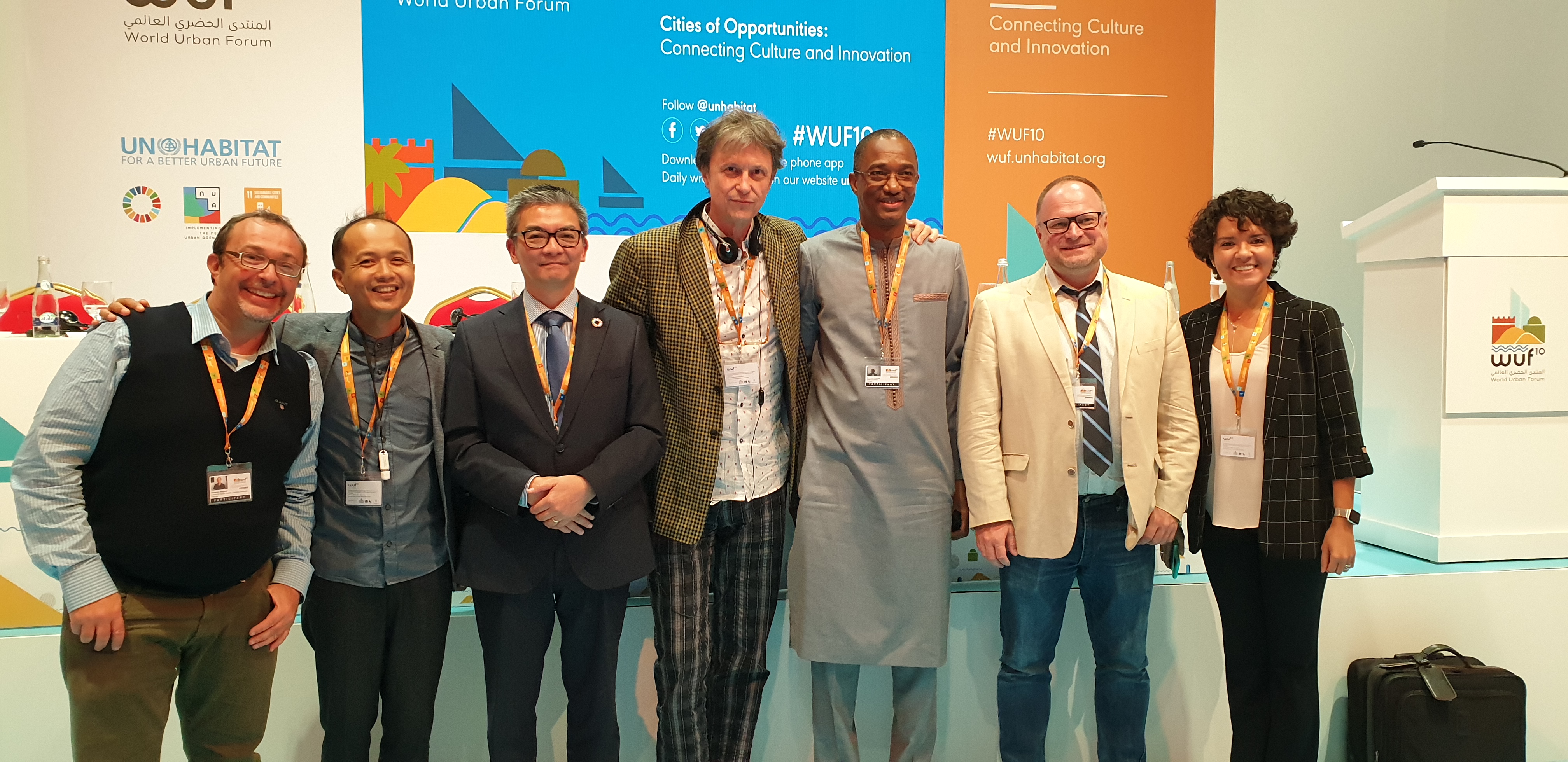
The IOPD was a partner to the networking session held about participatory budgeting, climate change and mitigation.
The session was moderated by Yves Cabannes, DPU-UCL. Bachir Kanoute, Enda Ecopop IOPD Africa, Senegal; Ivan Shulga and Anna Sukhova, World Bank, Russia; Marco Kamiya, Head of Urban Economy and Finance Branch, UN-Habitat, Kenya; and Ahmad Rifai from Kota Kita Foundation, Indonesia.
This session was the continuation of the IOPD Conference held in Iztapalapa in December, as participatory budgeting and climate change were discussed and voted as thematic priorities for the 2020 IOPD work plan. During this session, experiences from different regions of the world were presented: Bordeaux and Metz in France, in Portugal, in Indonesia, Dalifort in Senegal and in Russia.
These cases illustrated how participatory budgeting and civil society actions, when they are directly linked to climate change, can be tools that serve to rethink, educate and create solidarity to face and respond to pressing urban and human problems that represent climate change and its impacts.
Since the implementation of the first participatory budgets, projects to improve the environment have been approved. For example, the cleanliness of the waters in Porto Alegre stood out, which allowed working classes to enjoy of the beaches. The experience of the participatory budget in Russia that strengthens firefighting facilities to fight increasingly frequent fires was also presented. But now there are participatory budgets fully oriented to climate change such as Lisbon, among other cities.
The session ended with a call to launch a Solidarity PBs for Climate, an idea for climate justice to allocate resources to the communities more affected by the climate emergency.
Achieving SDG 11 and the NUA with Participatory Budgeting
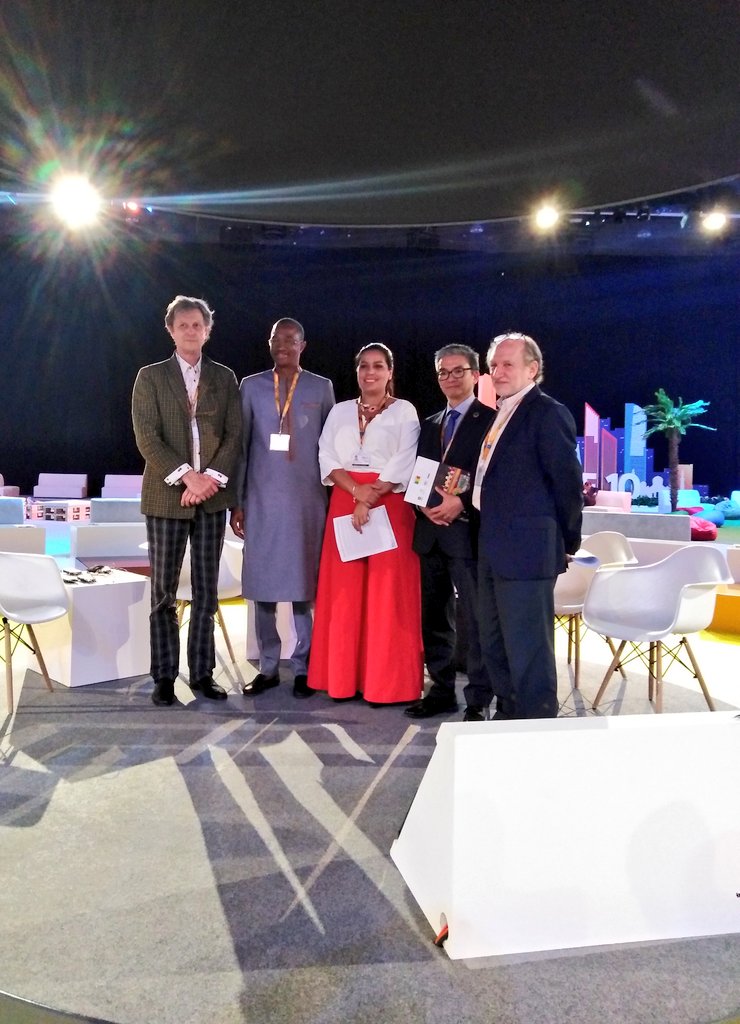
UN-Habitat, University College London, Escobedo City (Mexico), UCLG and ENDA organized jointly this session at which one the IOPD actively participated. The session was moderated by Yves Cabannes, University College London / Development Planning Unit and the speakers were Marco Kamiya, Senior Economist, Knowledge and Innovation, UN Habitat Programme, Nairobi; Nina Carolina Izábal, Estado de México; Bachir Kanouté, Enda Ecopop Director, IOPD Africa; Edgardo Bilsky, Head of research, UCLG World Secretariat.
The experts presented how participatory budgeting can be used as tools to implement the New Urban Agenda and the SDGs. Nina Carolina Izábal exposed the challenges territories such as the State of Mexico must face and how the public policies are developing urban planning through participatory mechanisms in order to solve these urban challenges.
Edgardo Bilsky mentioned the need to compile participatory experiences and informations and therefore the importance of initiatives such as the IOPD Award for "Best Practice in Citizen Participation" in order to collect practices of local governments that can be replicated and helps to monitor the SDGs implementation.
Cocody Conference Launch
The IOPD and the city of Cocody officially announced the dates of the IOPD 20th International Conference: july 20-22th that will be about Sustainable Cities/Territories and Participatory Democracy.
You can find the description of the conference here, more photos on flickr, every sessions of the IOPD during the WUF 10th here and the WUF 10 Final Declaration here.